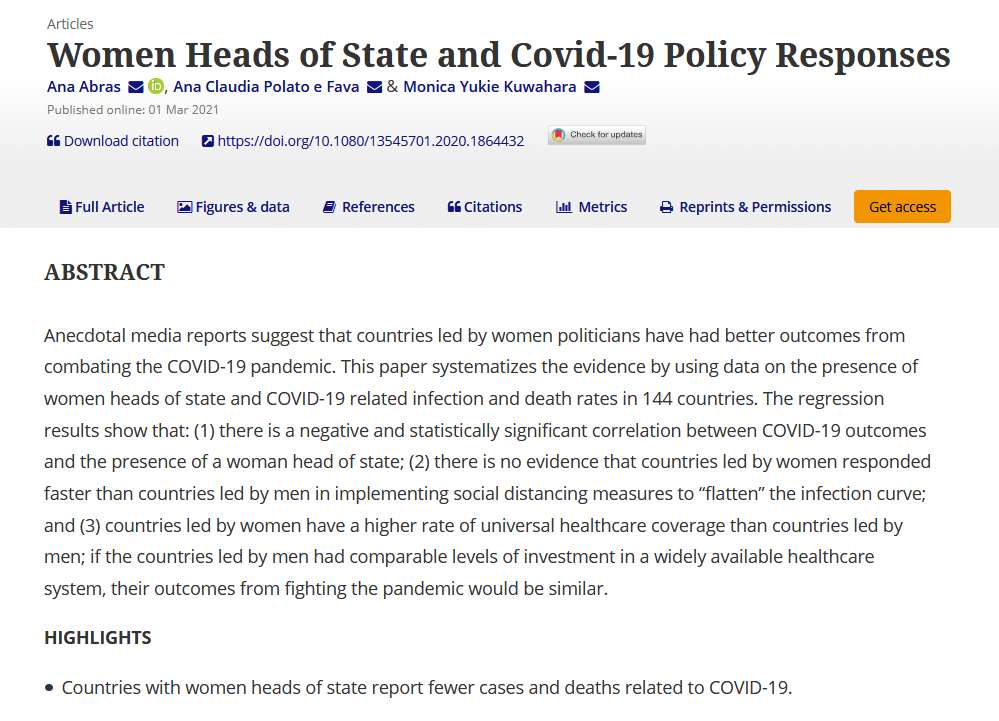Anecdotal media reports suggest that countries led by women politicians have had better outcomes from combating the COVID-19 pandemic. This paper systematizes the evidence by using data on the presence of women heads of state and COVID-19 related infection and death rates in 144 countries. The regression results show that: (1) there is a negative and statistically significant correlation between COVID-19 outcomes and the presence of a woman head of state; (2) there is no evidence that countries led by women responded faster than countries led by men in implementing social distancing measures to “flatten” the infection curve; and (3) countries led by women have a higher rate of universal healthcare coverage than countries led by men; if the countries led by men had comparable levels of investment in a widely available healthcare system, their outcomes from fighting the pandemic would be similar.
Highlights
-
Countries with women heads of state report fewer cases and deaths related to COVID-19.
-
These states also have higher rates of universal healthcare coverage.
-
Women’s preferences for public spending on healthcare made these countries better prepared for the pandemic.
-
There is no evidence that women leaders were faster to implement social distancing measures.
-
Countries led by men could have similar outcomes with investment in higher healthcare coverage.
Abras, A., Fava, A. C. P. E., & Kuwahara, M. Y. (2021). Women Heads of State and Covid-19 Policy Responses. Feminist Economics, 1-21.






